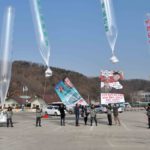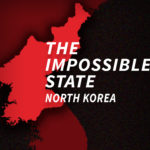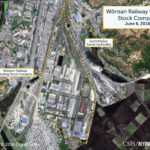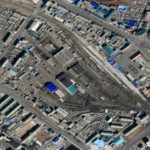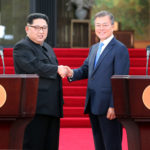October 7, 2021, by Min-Jung Kim—
On January 22, 2021, a controversial bill was proposed by the Ministry of Unification of South Korea. If radio broadcasting to North Korea is subjected as indicated, the bill can have a far greater impact in the United States than the Anti-Leaflet Law has, as most of the radio broadcasting activities to North Korea by South Korean nongovernmental organizations (NGOs) are funded by the U.S. government or U.S. citizens.
March 17, 2021, by Joseph S. Bermudez Jr., Victor Cha, Marie DuMond, Jonathan E. Hillman and Maesea McCalpin—
Although significant political barriers remain to reconnecting the Korean peninsula, there is merit in substantive study of the types of energy infrastructure connections that would best promote regional growth and stability. The cases examined in this report underscore North Korea’s dire need for energy infrastructure investment and the importance of it meeting the G20 quality infrastructure investment principles.
December 22, 2020, by Robert King—
The South Korean National Assembly last week approved legislation that imposes stiff fines and jail terms for sending leaflets, USB sticks, Bible verses, and even money across the 38th parallel into North Korea via balloons. The real risk for the Moon government is that by responding so quickly to the derisive dressing down from Kim Yo-jong, it may give Seoul the appearance of being overly eager to accede to Pyongyang’s demands. Such a response weakens South Korea’s ability to negotiate with the North. The quick capitulation by the South only encourages Pyongyang to take a tougher stance in the future.
January 7, 2019, by Victor Cha, Joseph S. Bermudez Jr. and Marie DuMond—
Should inter-Korean cooperation result in the re-connection of the railways in North and South Korea, the rail networks of the Korean peninsula could then be integrated into a rail network spanning the Eurasian continent through China and Russia. If actualized, this would mark a significant diplomatic and geopolitical accomplishment for the Korean peninsula. Nonetheless, a long and significant modernization process will need to take place to fully integrate the systems in a commercially viable way.
December 18, 2018—
This Living History interview features Ambassador Chung Chong Wook, former Republic of Korea ambassador to China and former senior secretary to President Kim Young-sam for national security and foreign policy. Ambassador Chung recounts his personal experience serving as a senior government official during the summer of 1994 that was marked by a series of critical events in inter-Korean and U.S.-South Korea-North Korea relations.
December 10, 2018, by Victor Cha, Joseph S. Bermudez Jr. and Marie DuMond—
North and South Korea are moving forward with inter-Korean railway cooperation as a key engine for advancing inter-Korean reconciliation and building the infrastructure for eventual unification. Once connected, however, a significant modernization and harmonization process will need to take place to fully integrate the systems in a commercially viable way.
September 25, 2018—
David Kang, director of the Korean Studies Institute at the University of Southern California, joins CSIS’s Victor Cha again by phone to discuss the latest Inter-Korean summit, what this means for denuclearization, and what to expect from a potential 2nd Trump-Kim summit.
July 9, 2018, by Victor Cha, Joseph S. Bermudez Jr. and Marie DuMond—
Commercial satellite imagery shows that the Wonsan Railway Rolling Stock Complex is currently active and appears to be well maintained by North Korean standards. In addition to its production and repair responsibilities, the complex serves as a center for North Korean railroad technical research and development.
May 22, 2018, by Joseph S. Bermudez Jr., Victor Cha and Marie DuMond—
Chongjin Railway Factory is one of three major railway manufacturing facilities in North Korea's eastern corridor. Analysis of this facility can be a brick-and-mortar sign-post of foundational infrastructure progress if the trust-building project of reconnecting the Koreas' railways is carried out.
May 21, 2018, by Seong-whun Cheon—
The absence of specifics on the nuclear issue in the Panmunjeom Declaration means that the inter-Korean summit has passed the nuclear buck on to the U.S.-DPRK summit. In particular, by introducing measures for promoting bilateral relations that are contingent on satisfactorily addressing the nuclear issue, the Panmunjom Declaration makes settling the nuclear issue a precondition for improving inter-Korean relations.



